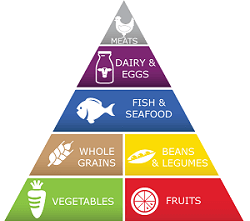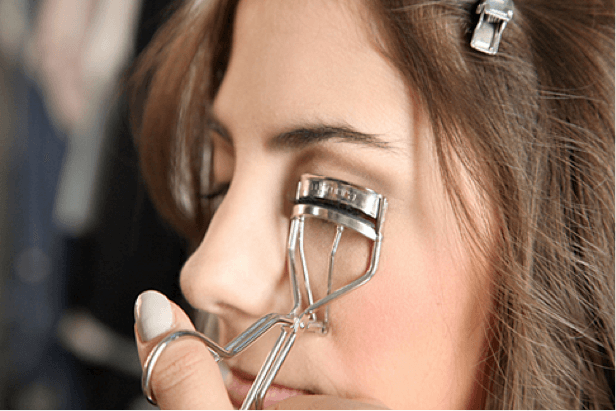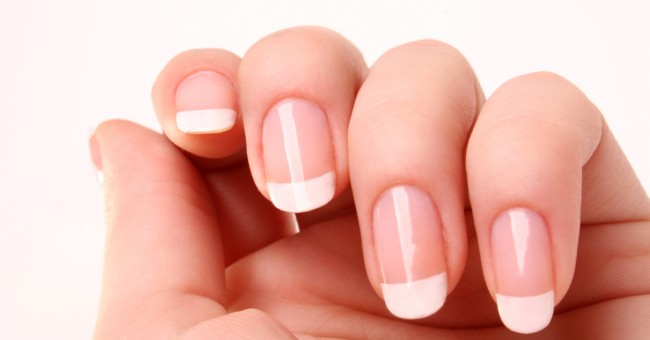If you are looking for a heart-healthy eating plan to get you ready for the beach this summer, then the Mediterranean diet might be right for you.
The Mediterranean diet incorporates the basics of healthy eating, plus a splash of flavorful olive oil and even a glass of red wine. There are also other components characterising the traditional cooking style of countries bordering the Mediterranean Sea. Read more on the Mediterranean diet to get fit…
What does the Mediterranean diet consist of?
• Base your meals on starchy carbohydrates, such as bread, pasta, rice or potatoes. Choose wholegrain varieties wherever you can, or eat potatoes with their skins on for more fibre
• Eat at least 5 portions of a variety of fruit and vegetables a day
• Choose lean protein, which can be meat, fish, eggs, beans and other non-dairy sources
• Include some milk and dairy foods, such as cheese and yoghurt. They are great sources of protein and calcium
• Drink one glass of red wine a day

The main ingredients to eat for a Mediterranean diet
Olive oil
Why? Olive oil can quickly satisfy hunger, which leads to fewer total calories ingested at mealtime. It is unclear if any single component of this diet is responsible for these health benefits or if it is a combination of olive oil and a diet high in vegetables, fruit and fish.
Fresh pressed olive oil can be eaten immediately and retains the natural flavours, vitamins, minerals, antioxidants, and other healthy products of the ripe olive fruit.
Tip: Pick the best quality extra virgin olive oil, as it is one of the few oils that can be eaten without chemical processing. Nearly every other vegetable oil has been detoxified and refined with steam and solvents.
SEE ALSO: Myths and truths about olive oil for your skin and body care
Fruit and vegetables
Why? Bananas, avocados, sweetcorn, carrots and peas are higher in calories than most other fruit and veg. For example you could eat two small apples for around the same amount of calories as a banana.
Research suggests that we tend to eat the same volume or weight of food every day, regardless of its calorie content. So if you are looking to lose weight, it’s crucial to stick to lower calorie foods to make up this volume.
Fruit and vegetables play an important part in a weight loss diet. Many fruits and vegetables weight a lot, adding bulk to our diet, but they don’t provide that many calories.
Tip: Make sure that you eat your 5 a day. All fruit and vegetables including fresh, frozen, canned, dried and pure juices.
Nuts
Why? The fats in nuts are known as ‘good fats’. Nuts are beneficial sources for fibre and protein, which are two extremely key ingredients for facilitating weight loss.
Tip: Nuts are perfect for snacking, but can also be put in salads, yoghurts, whole grain cereals or eaten with low-fat dairy and fruit.
Almonds, walnuts, cashews and pistachios are all great choices.
Beans
Why? Beans are a top source of fibre and protein, which means that you are more likely to feel full sooner. The low-fat, high-fibre nature of a bean-centered diet means chances are good that you will lose weight eating this way.
Tip: Eat beans in soups or dishes seasoned with garlic and herbs. There are also lots of healthy ways to enjoy beans in desserts. Opt for black beans and lentils.
RECOMMENDED: Detoxipure for an Inner cleanse from Green People
Whole grains cereals
Why? Whole grains cereals are a fantastic source of fibre, which help to support a healthy digestive system. A high amount of fibre intake can help lead to a fast acting digestive system, raising metabolism in the process and helping to shed weight.
Tip: Add whole grains at meal and snack times. Choose whole grain wheat bread, brown rice and whole wheat pasta.
Fish and fish oils
Why? Fish is generally lower in calories than red meat, which means it is a good replacement in your diet. A larger quantity can be eaten for the same amount of calories in red meat, which may help to keep you fuller for longer.
Fish is also an excellent source of lean protein, a high intake of which is also thought to contribute to weight loss.
Omega 2 fatty acids from oily fish or fish oil supplementation have also been associated with better weight loss in a number of studies, so it can be concluded that fish can play a valuable part of a healthy weight loss diet.
Tip: You have to consider how fish is prepared or cooked. Deep fried, battered or crumbled fish tends to be a lot higher in fat and calories than steamed, grilled or BBQ varieties. Try to choose healthier cooking methods where possible. Opt for black cod, sable fish, rainbow trout, halibut, sardines, herrings and anchovies as these fish contain the highest amount of omega 3.



